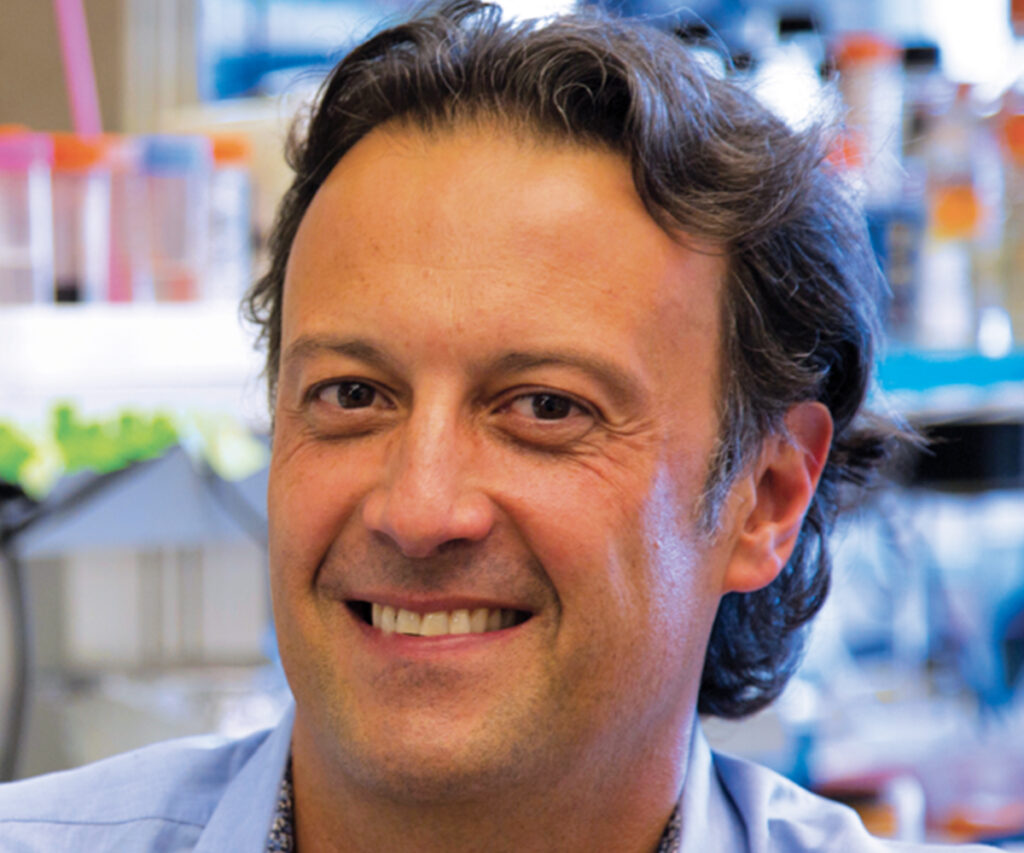
Many of the most common mutations that drive cancers activate a signaling network mediated by PI3 kinase (PI3K). Researchers co-led by Ludwig Harvard’s Alex Toker used mass-spectrometry-based metabolomics and isotope tracing to examine the key metabolic effects of PI3K activation. They reported in Nature in late July that PI3K activation stimulates the cellular generation of a pivotal metabolic cofactor, coenzyme A (CoA). CoA is a carrier of a small molecular unit that cells use to build a variety of large biomolecules, like the lipids that compose their membranes. Alex and colleagues identify PANK4 as a key substrate of AKT, an enzyme activated by PI3K signaling. They show that PANK4 suppresses CoA synthesis, and that it is in turn regulated by AKT. The researchers argue that the PI3K–PANK4 axis regulates processes such as lipid metabolism and cell proliferation and helps coordinate cellular CoA supplies with the demands of normal hormone- and growth factor-driven as well as oncogene-driven metabolism and growth.
PI3K drives the de novo synthesis of coenzyme A from vitamin B5
Nature, 2022 July 27